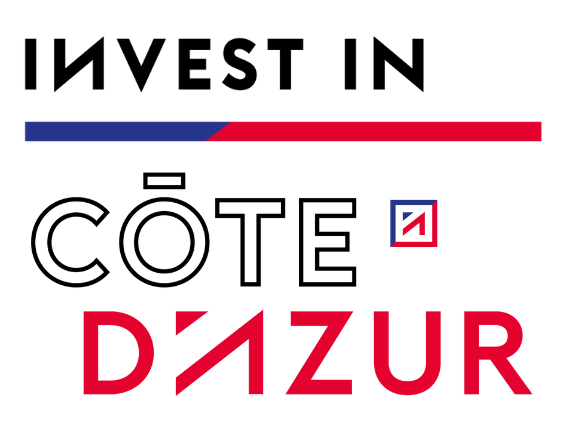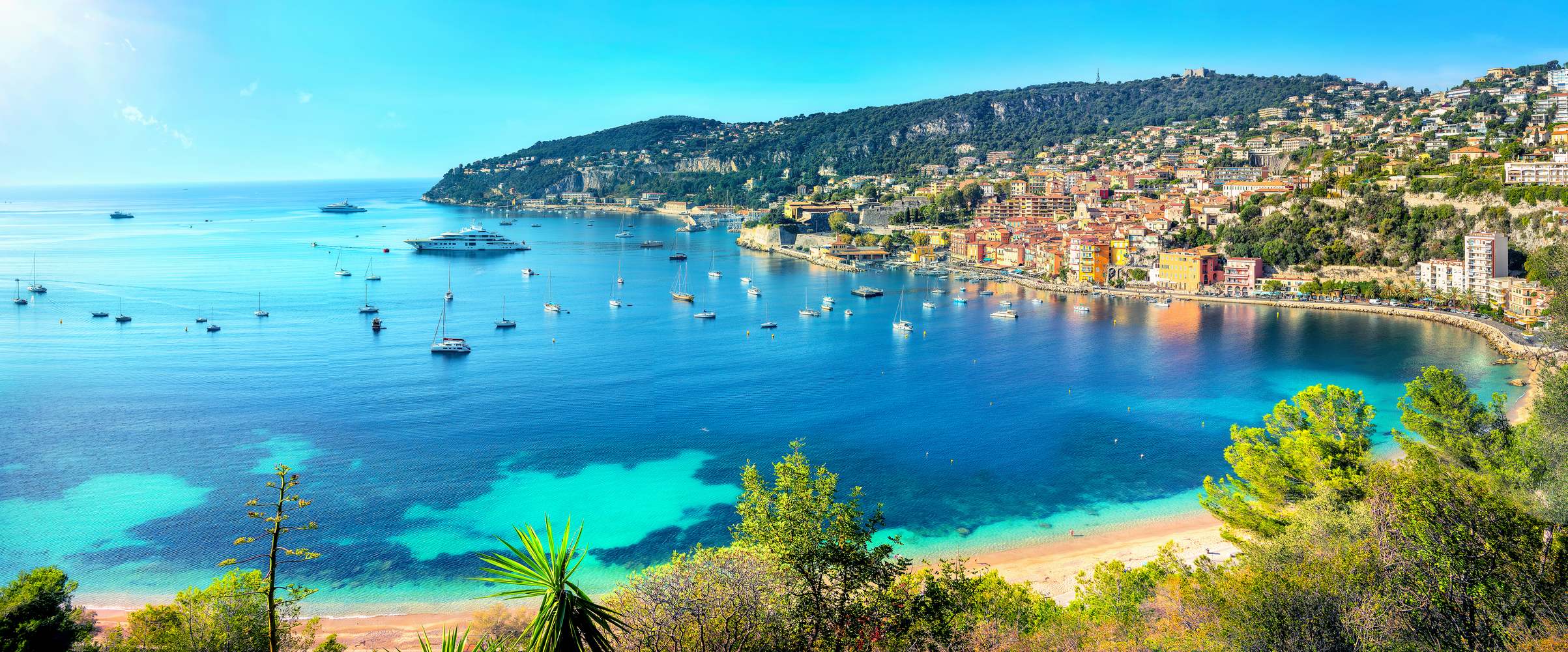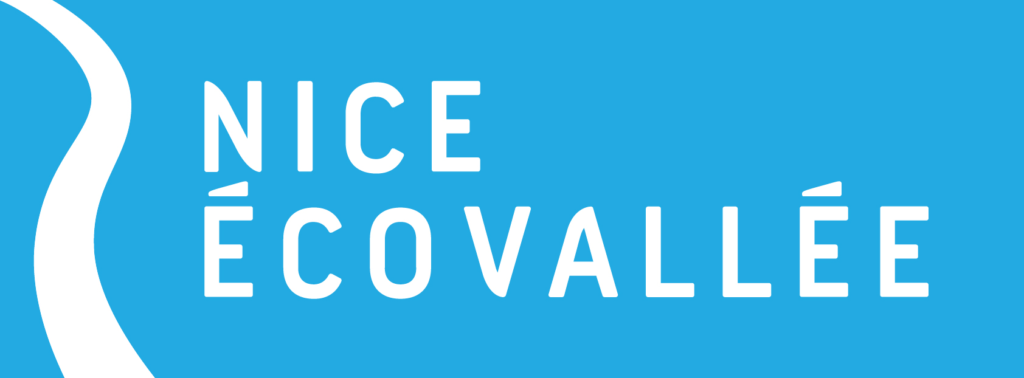Coming to France
Welcome to France!

Facts and figures
- Surface area: 633,186 sq. km.
- Population 66.6 million
- Capital city: Paris
- Official language: French
- Currency: Euro (EUR)
- System of government: Republic
- Founding member of the European Union
- Permanent Member of the UN Security Council, NATO, OECD, OSCE, G8 and G20
- Time zone: UTC/GMT + 1 hour in winter – UTC/GMT + 2 hours in summer
- National day: July 14
Government system
His Prime Minister (Head of Government), Mrs Elisabeth BORNE
In general, the President of the Republic is elected by direct universal suffrage for 5 years.
System of Government: Prime Minister, Ministers and Ministers of State.
Led by the Prime Minister, the French government designs and implements the government policy of the nation. The Parliament draws up and passes laws. It is made up of the National Assembly (577 deputies elected for five years by direct election), and the Senate (343 senators elected for six years by indirect election). In case of disagreement between the two chambers, the National Assembly decides definitively.
Regional and local authorities
France is composed of several types of local authorities: the region, the department, the municipality.
Councilors are elected for six years by direct election. They elect the President of the Regional Council, the President of the Departmental Council, and the local Mayor.
Municipalities can regroup to form intermunicipal entities.
There are five overseas local authorities: Saint Pierre and Miquelon, Wallis and Futuna, French Polynesia, Saint Barthélemy, and Saint-Martin.
Voting right
In France, the legal voting age is 18 years old. Foreign Nationals from European Union member countries can vote during municipal and European elections.
Climate
The climate in mainland France is temperate with mild temperatures. Open to the Atlantic Ocean to the west, the country benefits from prevailing sea winds, and therefore from moderately cold winters, mild temperature summers, and frequent rainfall.
Since the French territory is wide, the climate is not consistent. Regional variations occur due to the latitude and the differences in distance from the sea or mountainous areas. Temperature variations are less noticeable on the French coast than in the rest of the country, but the rainfall is higher.
Telephone calling codes
- + 33 (Mainland France)
- + 590 (Guadeloupe, Saint Martin, and Saint Barthélemy)
- + 262 (Réunion, Mayotte)
- + 681 (Wallis and Futuna)
- + 689 (French Polynesia)
- + 590 (Guadeloupe, Saint Martin, and Saint Barthélemy)
- + 596 (Martinique)
- + 508 (Saint Pierre and Miquelon)
- + 687 (New Caledonia)
Visas, staying, working

Do you need a visa to enter France?
Depending on your situation and nationality, a visa will be required to stay in France. To get a personalized assistance, please consult the dedicated « Procedures » page of Welcome to France.
Useful links
EU, EEA and Swiss nationals
Members of the European Union (EU), the European Economic Area (EEA) and Switzerland can travel freely within the European Union.
They are free to enter France without a visa but must have a valid national identity card or passport.
EU members wishing to live in France need to register at the town hall in the municipality where they are staying within 3 months after arriving in France.
EU and EEA Member States and Switzerland:
- Austria
- Greece
- Norway*
- Belgium
- Hungary
- Poland
- Bulgaria
- Iceland*
- Portugal
- Croatia
- Ireland
- Romania
- Cyprus
- Italy
- Slovakia
- Czech Republic
- Latvia
- Slovenia
- Denmark
- Liechtenstein*
- Spain
- Estonia
- Lithuania
- Sweden
- Finland
- Luxembourg
- Switzerland
- France
- Malta
- United Kingdom
- Germany
- Netherlands
Useful links
- EU, EEA and Swiss nationals:https://www.welcometofrance.com/en/eu-eea-and-swiss-nationals
- Practical information about coming to France:https://www.diplomatie.gouv.fr/en/coming-to-france/
- Free Movement – EU nationals:https://ec.europa.eu/social/main.jsp?catId=457&langId=en
Other foreign nationals
A visa issued by the French authorities also grants you the right to travel to the Member States of the Schengen Area (which now is a region of 29 European countries that have abolished their internal borders to allow the free and unrestricted movement of people according to SchengenVisaInfo.com)
To enter France, you must have:
- A travel document (a valid passport or a visa and / or residence permit issued by the French authorities or those of a Schengen country).
- Written proof related to your personal (reason, duration…) or professional stay (duration, visited establishments…)
- Written proof related to your financial means during you stay
- Repatriation guarantees
French authorities reserve the right to refuse entry into French territory.
Useful links
- Schengen Area:https://www.welcometofrance.com/en/other-foreign-nationals
- Requesting a visa:https://www.diplomatie.gouv.fr/en/coming-to-france/requesting-a-visa/
- Articles L211-1 to 10:https://www.legifrance.gouv.fr/affichCode.do?idSectionTA=LEGISCTA000006163220&cidTexte=LEGITEXT000006070158&dateTexte=20161201
- Article L212-1 and 2:https://www.legifrance.gouv.fr/affichCodeArticle.do;jsessionid=1F93E82C2E1D9AADFAE7A86A989FC830.tpdila07v_1?idArticle=LEGIARTI000006334993&cidTexte=LEGITEXT000006070158&dateTexte=20170207&categorieLien=id&oldAction=
Applying for a short stay visa (3 months)
A short-stay visa allows foreign nationals to enter and stay in France for up to 3 months. Short-stay visas can be single-entry for one short stay or multiple-entry for several successive short stays.
It is granted for:
- Tourist visits
- Pleasure, family or personal visits
- Business trips
- Short courses or internships
- Paid employment, under certain conditions
The short stay visa does not allow its beneficiary to settle in France or to bring his family. Its validity is 5 years maximum. The maximum duration allowed is 90 days per 180-day period and valid in the Schengen Area.
Applications must be submitted to the French embassy or consulate in the applicant’s country of residence no earlier than three months before the planned date of arrival in France.
Applying for a long stay visa
A long-stay visa allows foreign nationals to stay in France for more than three months. The goal is to enable the holder to obtain a residence permit so they can live in France during a specific period of time.
A long-stay visa equivalent to a residence permit (“visa de long séjour valant titre de séjour” – VLS-TS) allows the holder to enter France and live in the country from 3 to 12 months without applying for a separate residence permit.
Applications must be submitted to the French embassy or consulate in the applicant’s country of residence.
During the validity periody, the long-stay visa grants the same rights as a temporary residence permit or a multi-year residence permit.
To request a long-stay visa in France, valid motives are:
- Working or investing
- Studying
- Doing an internship or a training
- Traveling for tourist, family or personal visits
- Traveling for business
- Traveling for a family reunification
Long-stay visas are valid from 3 months until one year. Upon expiry, the holder must leave the country. If not, the holder becomes an unauthorized resident in France, and can be fined. Failure in this instance will also be considered if the holder applies for another visa.
The visa allows the holder to apply for a residence permit to settle in France. Foreign nationals wishing to extend their stay must contact the Préfecture in their place of residence 2 months before their visa expires to obtain a residence permit authorizing them to stay in France.
- Fact sheet : Long stay visa:
- All information on the reception of foreigners in France
- Texts relatied to immigration, asylum, reception and support of foreigners
Useful links
- Applying for a short-stay visa:https://www.welcometofrance.com/en/applying-for-a-short-stay-visa
- Short-stay visa – France Visas:https://france-visas.gouv.fr/en_US/web/france-visas/short-stay-visa
Long-stay visa equivalent to a residence permit
A long-stay visa equivalent to a residence permit (“visa de long séjour valant titre de séjour” – VLS-TS) allows the holder to enter France and live in the country from 3 to 12 months without applying for a separate residence permit. This visa is valid up to 1 year. After the first year of residence, foreign nationals wishing to extend their stay in France must apply for a new permit which corresponds to their situation. In this case, they must apply to the Préfecture in the two months before their VLS-TS expires.
VLS-TS applications must be submitted to the French embassy or consulate in the applicant’s country of residence.
Apart from Swiss and EEA nationals, citizens of the following are exempt from the VLS-TS:
- Monaco
- Andorra
- The Vatican
- San Marino
Categories of VLS-TS include:
- The ‘Employee’ VLS-TS, aimed at foreign nationals recruited by companies in France, for one year or more.
- The ‘Temporary Worker’ VLS-TS, aimed at employees allowed to work in France from 3 to 12 months.
- The ‘Research Scientist’ VLS-TS, issued to foreigners undertaking research work or teaching at university level.
- The ‘Student’ VLS-TS.
- The ‘ICT’ VLS-TS, for intra-company transferees and their families for stays of less than 12 months.
- The ‘Talent Passport’ VLS-TS for all stays of less than 12 months in the following categories:The ‘Talent Passport’ VLS-TS for all stays of less than 12 months in the following categories:
- Business investors
- Company directors
- Employees on assignment
- Highly skilled workers (European Union Blue Card)
- Skilled young graduate employees or employees of an innovative new company (jeune entreprise innovante – JEI)
- Researchers
- Founders of a startup business
- Owners of innovative business projects recognized as such by a public agency
- Performing artists
- Foreigners nationally or internationally recognized as experts in their field (in the scientific, literary, artistic, intellectual, educational or sporting fields)
Useful links
- Long-stay visa equivalent to a residence permit (VLS-TS):https://www.welcometofrance.com/en/fiche/long-stay-visa-equivalent-to-a-residence-permit-vls-ts
- General information about long stay visa:https://france-visas.gouv.fr/en_US/web/france-visas/long-stay-visa
- Special resident permits:https://www.diplomatie.gouv.fr/en/the-ministry-and-its-network/protocol/status/article/special-resident-permits
What kind of residence permit do you need to live in France?
In addition to a visa, you also need to apply for a residence permit to live in France. The type of residence permit you need depends on the reason of your stay.
You are coming to run a company in France
The “Talent Passport” is the official document you need whether you are creating a company or startup or are the director of a multinational company.
This document is valid up to 4 years on a renewable basis depending on the nature, characteristics and length of the project.
Once in France, the residence permit is issued to the business creator by the prefect of their department of residence upon presentation of the long-stay visa. The request must be made 3 months before the date of arrival in France.
Applicants living outside France should apply to the French consular authorities in their usual place of residence. The residence permit should be applied for at the same time as the long-stay visa “Talent Passport”. Once in France, the residence permit is issued to the new business creator by the Prefect of their departement of residence upon presentation of the long-stay visa.
If applicants are already living in France with a different type of residence permit, they need to apply to the Préfecture (office of the Prefect, the local representative of national government) in their place of residence for a change of status. Renewal applications must be submitted in the two months before the residence permit expires. Applications should be made to the Préfecture in the applicant’s place of residence in France.
Depending on your situation and project, you may apply for one of the following residence permits:
- Company directors or legal representatives : Talent Passport – company director’ multi-year residence permit
- Company founders : ‘Talent Passport – new business’ multi-year residence permit
- Startup founders : ‘Talent Passport – innovative business project’ multi-year residence permit
Useful links
You are coming to invest in France
Foreign investors wishing to settle in France for a planned investment can apply for a visa Talent Passport ‘Business investor’ if they proceed to a direct investment either:
- Personnally;
- Via a company they control;
- Or Via a company in which they have at least a 30% shareholding.
They also need to meet all of the following criteria:
- They are creating or protecting, or committing to create or protect, jobs within the four years following the investment;
- They are investing, or committing to invest, at least €300,000 in fixed tangible or intangible assets.
Foreign investors eligible to Talent Passport marked ‘Business investor’ involved in the French Tech sector can benefit from the French Tech Visa for Investors dedicated procedure.
Investors living outside of France should apply to the French consular authorities in their usual place of residence. The residence permit should be applied for at the same time as the long-stay visa marked Passeport Talent (‘Talent Passport’) authorizing the foreign investor to enter France. Once in France, the residence permit is issued to the investor by the Prefect of their department of residence upon presentation of the long-stay visa. The procedure should be initiated no earlier than three months before the date of arrival in France.
If applicants are already living in France under a different type of residence permit, they will need to apply to the Préfecture in their place of residence for a change of status so as to obtain a ‘Talent Passport – Business investor’. If the applicant is already living in France, the procedure should be initiated two months before the previous residence permit expires.
Useful links
- Welcome to France:https://www.welcometofrance.com/en/you-are-coming-to-invest-in-france
- Permits, residence documents and documents authorizing freedom of movement for foreigners (in French only):https://www.service-public.fr/particuliers/vosdroits/N110
You are an employee: your employer is in France
To work in France longer than 3 months, you will need a residence permit.
Different categories of employees holding an employment contract with an employer established in France may be eligible for a multi-year Talent Passport permit, valid up to 4 years (renewable), under certain conditions :
- Employees with a highly skilled position.
- Certain employees transferred to France from another company in the same group and who have signed a local contract with the group’s French entity.
- Employees recruited by an innovative new company (“jeune entreprise innovante” – JEI) and skilled employees who have obtained a masters-level degree in France. Employees recruited by a company recognized as innovative by the French Ministry of Economy may also be granted a Talent Passport via the French Tech visa for Employees.
Foreign employees not eligible for a Talent Passport may still be granted access to the French labor market through the issuance of a temporary residence permit.
Employees posted to France by an employer located outside France are not eligible for a Talent Passport. They may be eligible, subject to certain conditions, for another specific multi-year residence permit: the ‘Intra-company transfer’ permit (“Salarié détaché ICT” or “Salarié mobile ICT”) – or the ‘temporary worker’ card for employees posted to France within the scope of international service provision.
You will find below the different residence permits you can apply for depending on your situation:
- Highly skilled employees : ‘Talent Passport – European Union Blue Card’ multi-year residence permit
- Employees transferred within a group (French contract) : ‘Talent Passport – Employee on assignment’ multi-year residence permit
- Qualified employees or employees working in innovative companies : ‘Talent Passport – Qualified employee or Employee of an innovative company’ multi-year residence permit
Applicants living outside France should apply to the French consular authorities in their usual place of residence. The residence permit should be applied for at the same time as the long-stay visa marked “Passeport Talent” (‘Talent Passport’) authorizing the foreign employee to enter France. Once in France, the residence permit is issued to the employee by the Prefect of their department of residence upon presentation of the long-stay visa. The procedure should be initiated no earlier than three months before the date of arrival in France.
If applicants are already living in France under a different type of residence permit, they will need to apply to the Préfecture (office of the Prefect, the local representative of national government) in their place of residence for a change of status. The procedure should be initiated two months before the previous residence permit expires.
Useful links
You are an employee: your employer is outside France
Employees whose employment contract is maintained with their original employer are considered as seconded employees. They are sent to France for a temporary assignment of up to 3 years in the context of intra-group mobility or service provision.
Employees sent to France for an intra-company transfer can obtain a multi-year ‘Intra-company transfer’ residence permit (‘Salarié détaché ICT’). Applicants whose assignment last under one year are issued with a VLS-TS marked ‘Intra-company transfer’.
Once the assignment is completed, posted employees cannot stay in France and must return to their country of origin, and in any event after no more than three years.
Posted employees should apply to the French consular authorities in their usual place of residence. The residence permit should be applied for at the same time as the long-stay visa marked ‘Intra-company transfer’ authorizing the foreign employee to enter France. The procedure should be launched no earlier than three months before the date of arrival in France.
Useful links
- Welcome to France:https://www.welcometofrance.com/en/you-are-an-employee-your-employer-is-outside-france
- Official website for visa application to France:https://france-visas.gouv.fr/en_US/web/france-visas/welcome-page
You are coming to provide a service
A foreign company without any establishments in France can temporarily post its employees to France to perform a service under the terms of a subcontracting agreement. The employer-employee relationship with the employer outside France is maintained.
Those employees will need a work permit, in addition to a VLS-TS “temporary worker” or a temporary residence permit “temporary worker”. This does not apply to citizens of the EU, the EEE or Switzerland.
The employer of the foreign employee will need to request a work permit to be attached to the residence permit application of the employee. The permit will be issued for a period over which the service is to be provided, up to 12 months.
Employees living outside of France will need to contact the French Embassy or Consulate in their country of residence. Employees living in France will have to contact the Prefecture of their Department of residence.
Useful links
- Welcome to France:https://www.welcometofrance.com/en/you-are-coming-to-provide-a-service
Other circumstances
If your residence permit no longer corresponds to your situation, you can apply to change your status so that it matches the reason of your stay in France.
This ‘change of status’ must be applied for at the Préfecture of the foreign national’s place of residence in France two months before the previous residence permit expires.
Useful links
- Welcome to France:https://www.welcometofrance.com/en/other-circumstances
Is your family coming with you
Residence permits, Talent Passports and intra-company transfer (ICT) permits granted to foreign investors, company directors, startup owners and employees make it easier for your family to come to France with you.
Family members may be eligible for residence rights as well as access to employment through the ‘accompanying family’ procedure.
The simplified ‘accompanying family’ procedure is open to spouses and children under 18 who rely on the holder of one of the following multi-year permits:
Various categories of ‘Talent Passport’ (New businesses, startups and company directors, highly skilled employees, employees transferred between companies on a French contract, qualified young graduates, and employees of a startup) : ‘Talent Passport – Family’ permit
‘Intra-company transfer’ (Salarié détaché ICT) permit : ‘Intra-company transfer – Family’ permit
‘Intra-company transfer’ (Salarié détaché mobile ICT) permit: ‘Intra-company transfer – Family’ (Salarié détaché mobile ICT- Famille) permit
Useful links
- Welcome to France :https://www.welcometofrance.com/en/is-your-family-coming-with-you
Do you need a work permit?
A work permit can take different forms:
- A long-stay visa equivalent to a residence permit (VLS-TS) or a residence permit authorizing the holder to take up paid employment.
- A specific work permit for people whose residence permit does not allow them to work.
Obtaining a work permit
It is up to the employer, whether located in France or abroad, to submit the application for a work permit at least 2 months at least two months before the employee starts their assignment.
Before submitting the application, the employer must have attempted to find a candidate already in the French labor market with the help of government agencies (e.g. Pôle Emploi) or private organizations.
For employees living outside France, the employer should contact the foreign labor department of the local employment authorities (DIRECCTE) covering the place where the employee will be working.
For employees living in France, the relevant authority is the one covering the foreign national’s place of residence. Upon arrival, le employees can start working.
The foreign national may begin work immediately upon arriving in France. A declaration must be submitted to the French Immigration and Citizenship Office (Office français de l’immigration et de l’intégration – OFII) within three months of arrival. The employee is then asked to attend a compulsory medical examination and/or welcome visit.
Useful links
- Welcome to France :https://www.welcometofrance.com/en/obtaining-a-work-permit
Renewing a work permit
- In the context of a VLS-TS or a residence permit authorizing a salaried activity, the request for renewal must be made 2 months before the end of validity of the title with the prefecture of his place of residence in France.
- In the context of a specific work permit, the renewal application must be submitted to the Territorial Unit of the employee’s home 2 months before the end of the validity of the work permit.
- In the context of a change in employment status (from a salaried activity to a business start-up, for example), an application for a change of status must be submitted 2 months before the expiry of the previous residence permit.
Useful links
- Welcome to France:https://www.welcometofrance.com/en/renewing-a-work-permit
Employees posted to France by an employer established outside France (service provider)
In addition to the required work permit, a pre-posting declaration must be sent in this case to the labor inspectorate at the place where the service is provided.
The application must be submitted before the beginning of the mission by any foreign employer via dedicated teleservice.
Useful links
- Welcome to France:https://www.welcometofrance.com/en/employees-posted-to-france-by-an-employer-established-outside-france-service-provider
- Specific teleservice (in French only) :https://www.service-public.fr/professionnels-entreprises/vosdroits/R42380
- Standard templates for prior posting declarations :https://travail-emploi.gouv.fr/demarches-ressources-documentaires/formulaires-et-teledeclarations/etrangers-en-france/article/detachement-de-travailleurs-declaration-prealable-de-detachement-109542
Taxation

Tax residency
Tax residency depends on internal regulations or reciprocal agreements and treaties.
Legal or conventional criteria determine tax residence. Your tax residence will be considered in France if you fulfill one of the conditions below, regardless of your nationality:
- Your permanent place of residence is in France, i.e. your habitual place of residence or that of your family (spouse and children).
- If you have dual permanent residence, the center of your financial and personal interests is in France.
- If your center of interests cannot be determined, your primary place of residence is in France (residence in France for more than 183 days in the same year).
- In the absence of any other deciding criteria among the above (primary place of residence or no place of residence in either country), your tax residence will be in France if you hold French nationality.
- Failing this, the tax authorities of both countries may be seized to determine your tax residence.
Persons having their tax residence in France are taxable on all their income from French and foreign sources. People who are not tax resident in France will only be taxed on their French source income.
International tax treaties may also provide for specific arrangements.
Useful links
- Determination of tax residency:https://www.welcometofrance.com/en/taxation/tax-residency
Tax regime for expatriates
A special expatriate exemption scheme exists to help attract company directors and employees to France by providing partial income tax exemption, subject to certain conditions and for a period of up to eight years.
Eligible employees and company directors of any nationality called upon to work full-time in a permanent or temporary position for a company established in France can benefit from this specific tax regime.
To be eligible, beneficiaries must fulfill two conditions:
- Not having been domiciled in France during the 5 calendar years preceding the taking of office
- Be a tax resident in France for the year in question.
Useful links
- Fact sheet: expatriate regime:https://www.welcometofrance.com/en/taxation/expatriate-exemption-scheme
Declaring your taxes
The tax return summarizes the income received by a taxpayer resident in France during the previous year and allows the French tax authorities to calculate the amount of tax to be paid. It also mentions the family situation and any dependents of the taxpayer.
The declaration must be carried out each year between mid-April and end-May / beginning of June in case of declaration by Internet and according to the department of residence.
Once the declaration has been completed, an income tax notice stating the total amount to be paid is sent to the taxpayer by the tax authorities when it is taxable. This notice is sent to the taxpayer during the second half of the year.
The declaration is made by tax household. A statement will be sufficient for all members of a family:
- The taxpayer or the spouses (married or pacsés). Spouses or partners of PACS may also decide to make a separate declaration of their income
- Dependents
- People who have just arrived in France must complete their declaration on paper in the first year. The procedure can be carried out by internet from the second year on the site www.impots.gouv.fr.
- The tax return form, which must be dated and signed by the taxpayer, is called Cerfa no. 2042. It evolves every year according to the law of finances. As an appendix to this declaration, certain types of income are reported on forms (property income, capital gains, income received abroad, etc.).
Useful links
- General information about taxes:https://www.welcometofrance.com/en/declaring-your-taxes
- Impot.gouv.fr:https://www.impots.gouv.fr/portail/international_en?l=en
Where to find more information?
Useful links and contacts
- Useful contacts: https://www.welcometofrance.com/en/useful-contacts
- Contact us: https://www.welcometofrance.com/en/contact-us
- Tax4Business:https://www.impots.gouv.fr/portail/international-professionnel/tax4business
- « Impôts Service » : +33 810 467 687 – premium rate services
- « Prélèvement à la source » : +33 809 401 401
- « Service des impôts des particuliers non-résidents » : +33 1 57 33 83 00 /sip.nonresidents@dgfip.finances.gouv.fr
Social protection

Foreign employees: Registering for French Social Security
Foreign employees who work and live in France are covered by French social security legislation, regardless of their nationality or location of their employer.
As such, they are covered by the “Régime général” (General Social Security System) of France’s public health insurance fund. Foreign employees must be able to prove that they are legally allowed to live in France by showing a valid residence permit.
Useful links
- Social security for foreign employee:https://www.welcometofrance.com/en/employees-registering-for-french-social-security
- French Health Insurance:www.ameli.fr
Seconded employees: Coverage by your home country’s health insurance system
According to the French social security, a seconded employee is one who has been sent by a foreign-based employer to perform a temporary assignment in France.
The chain of command between the employee and the employer is maintained during the assignment in France. Under certain conditions, the employee may be covered by the social security system of the country in which they usually work.
Depending on the status of an intra-community posted worker, seconded employee by bilateral agreement, or other, additional formalities will be required.
Useful links
- Social security for seconded employees:https://www.welcometofrance.com/en/seconded-employees-ensuring-you-will-continue-to-be-covered-by-your-home-country-s-health-insurance-system
- French Health Insurance:www.ameli.fr
Daily life

Opening a bank account
Opening a French bank account is required to carry out everyday transactions (receiving salary, paying rent and bills, shopping, etc.).
To open an individual or joint bank account, you will need to present valid photo identification and proof of address in France.
You may be asked to provide any of the following documents:
- Passport, and Residence permit
- Proof of address (an electricity, gas, water or landline bill, or a declaration that you are being housed free of charge signed by the person providing you with accommodation, together with a copy of one of their bills and their photo ID)
- Proof of income: pay slip or tax notice
- Foreign tax identification number
If a bank rejects your application to open an account, it must provide grounds for its decision. In such cases, you may appeal to the Banque de France, which will assign you a bank.
You will find below a list of banks available in the Alpes-Maritimes:
Banque Populaire, Barclays, BNP Paribas, Caisse d’Epargne, CIC, Crédit Agricole, Crédit Mutuel, HSBC, La Banque Postale, LCL, Société Générale.
Useful links
- Opening a personal bank account: https://www.welcometofrance.com/en/opening-a-bank-account
- Banque Populaire : https://www.banquepopulaire.fr/portailinternet/Pages/default.aspx
- Barclays Bank : https://www.barclays.co.uk/
- BNP Paribas : https://mabanque.bnpparibas/
- Caisse d’Epargne : https://www.caisse-epargne.fr/cote-d-azur/particuliers
- CIC : https://www.cic.fr/en/
- Crédit Agricole : https://www.credit-agricole.fr/
- Crédit Mutuel : https://www.creditmutuel.fr/home/index.html
- HSBC : https://www.hsbc.fr/en-fr/
- Site de la Banque Postale : https://www.labanquepostale.fr/
- Site du LCL : https://www.lcl.fr/
- Site de la Société Générale : https://www.societegenerale.fr/
Finding an accomodation
There are various ways of finding a new accommodation in France :
- Relocation agencies: Firms that specialize in helping skilled employees and their families relocate to France. Their services include obtaining official documents, searching for accommodation, schools for the children, and employment for spouses.
- Apartment hunters: Professionals who specialize in searching for apartments and houses. After an in-depth interview to determine the needs of the individual or family, apartment hunters search for an ideal home on their behalf.
- Real estate agents: When a property owner chooses to use an estate agent, the fees are shared between the owner and the future tenant. To find an estate agent, you can contact the relevant trade associations.
- Specialist websites: Searches can be performed based on certain criteria (location, apartment size, rental price, number of bedrooms, etc.). The most popular websites are:
- Seloger.com
- Explorimmo
- ParuVendu
- Rentals between individuals:
- pap (Particulier à Particulier)
- Le Bon Coin (website featuring classified ads from individuals)
Useful links
- Finding an accommodation:https://www.welcometofrance.com/en/renting-accommodation
Numbers to know in an emergency
- European emergency number : 112. If you are a victim or witness of an accident in a country in the European Union
- SAMU (French Emergency Medical Assistance Service) : 15. To call out a medical team to a medical emergency as well as to be referred to a round-the-clock health facility
- Emergency Police number : 17. To report a crime requiring an immediate police response
- Fire Brigade : 18. To report a dangerous situation or accident concerning people or property and receive a swift response
Useful links
- French Government:https://www.gouvernement.fr/en/the-numbers-to-know-in-an-emergency-0
Documents to prepare before your departure

Before arriving in France, you should cover several important topics including visas, residence permits, and employment contracts. You should also check how your family is affected by those subjects.
The “Welcome to France” online service can lead you every step of the way through the procedures to be completed with a personalized guide. You can also refer to the website of the French Government for any queries related to your documents.
Useful links
- Find out which documents you need to come to France:https://www.welcometofrance.com/en/my-procedures
- France-visas:https://france-visas.gouv.fr/en_US/web/france-visas


















